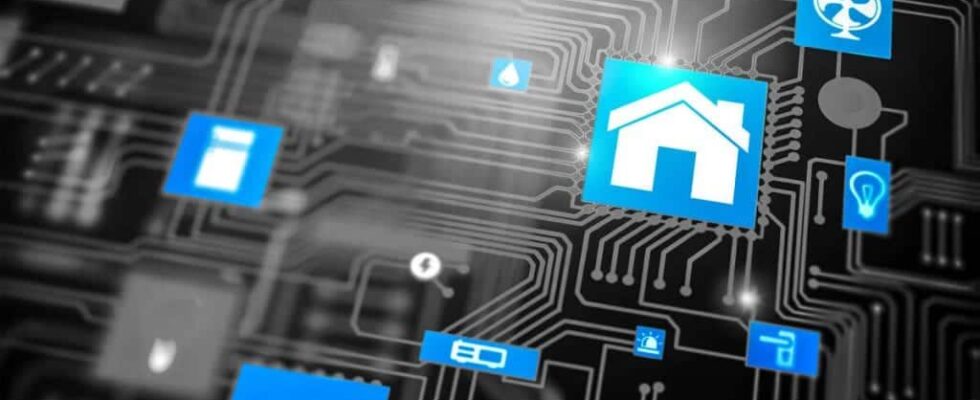Smart technologies are highly sophisticated, making them a great choice when it comes to security. But is this form of technology replacing traditional security methods? We’ll explore both the pros and cons of these approaches so that you can decide what’s best for your property.
Benefits of Smart Security Systems for Homeowners
The integration of smart security systems in modern homes has transformed the way homeowners safeguard their properties, providing both convenience and peace of mind. By integrating cutting-edge technology, these systems effortlessly protect homes from potential intruders and environmental hazards. Homeowners can remotely monitor their properties via their smartphones or other smart devices, allowing them to promptly respond to security breaches or incidents.
Additionally, smart security systems like smart locks for doors often include customizable features such as motion detection, doorbell cameras, and smartphone notifications, ensuring that homeowners are consistently well-informed and in control of their home security.
Furthermore, these systems contribute to enhancing a home’s property value and may even result in discounts on insurance premiums. Investing in smart security systems is undoubtedly a wise choice for homeowners seeking a comprehensive, reliable, and efficient way to protect their homes and families.
How Smart Technology Enhances Home Security
Smart technology has undoubtedly revolutionized the way we approach home security, providing homeowners with unprecedented peace of mind. As intelligent devices constantly evolve, they integrate impressive features such as facial recognition, remote monitoring, and real-time alerts to ensure that no potential breach goes unnoticed. In particular, the rapid rise of the IoT (Internet of Things) has bridged the gap between physical and digital security, enabling seamless connectivity and control over various aspects of our homes. Ultimately, the integration of smart technology into home security systems has transformed the industry and allowed us to deepen the layers of protection around our most cherished possessions and loved ones.
Potential Drawbacks to Incorporating Smart Technology in Home Security
While incorporating smart technology into home security systems may seem like the ultimate solution to protect your valuables and loved ones, it is essential to consider its potential drawbacks as well. One of the primary concerns lies in the vulnerability of these devices to hacking, as cybercriminals may gain unauthorized access to your security data, compromise your privacy, and potentially cause harm. In addition, these advanced systems typically rely on an uninterrupted power source and a stable internet connection, which could prove detrimental during power outages or connectivity issues.
Furthermore, the complexity of these systems, coupled with their sometimes prohibitive costs and the requirement of a learning curve to operate them efficiently, may discourage some individuals from adopting smart home security.
How Smart Security Can Help Save Money and Time
Smart security systems are a great way to save money and time. Smart security solutions can reduce the risk of both property loss and personal injury while keeping your home or business secure. These systems come equipped with motion sensors and cameras, meaning they respond quickly when suspicious activity is detected.
With remote monitoring, you also have ready access to real-time video of events in your home or business, so you can take action right away if needed. All this reduces the need for expensive around-the-clock guards and monitoring, meaning more money and time can be saved.
Furthermore, some smart security systems even offer automatic alert notifications to your mobile device, enabling you to be mindful of what’s happening at all times and offering greater peace of mind with minimal effort.
Recommendations for Choosing the Right Smart Security System
Choosing the right smart security system is important if you want to keep your home and family safe. To make a good choice, you should start by figuring out what you need and taking into account things like the size of your property, the type of neighborhood you live in, and the level of security you want.After determining your needs, research the various options available on the market, such as wired or wireless systems, and evaluate the pros and cons of each. Don’t forget to explore the features provided by different smart security systems, like live video monitoring, remote access, and automated alerts.
Installing and Maintaining a Smart Security System
Installing and taking care of a smart security system could be the best way to keep your home or business safe from possible dangers.This cutting-edge technology has many features, like real-time alerts, remote access, and the ability to work with other smart home devices. This gives you the best protection and peace of mind you can get.
These systems not only keep criminals away, but they also record useful information that law enforcement can use if something goes wrong.As technology advances, smart security systems become more user-friendly, and the installation process is no longer the complicated puzzle it used to be.
Maintenance is equally crucial to ensure your system remains functional over time. Regular software updates, battery replacements, and occasional hardware check-ups are essential to safeguarding your invaluable assets and loved ones. With a smart security system, you can rest assured that your property is constantly insured, even when you are miles away.
Getting a smart security system as the first step toward protecting your home will give you a lot of benefits.Smart technology makes it easier to keep unwanted people out of the house and keep an eye on what’s going on inside.
So, it’s important to do research when looking for and setting up the right system for your home. Take into consideration input from professionals and look into customer reviews to determine what works best for you.


